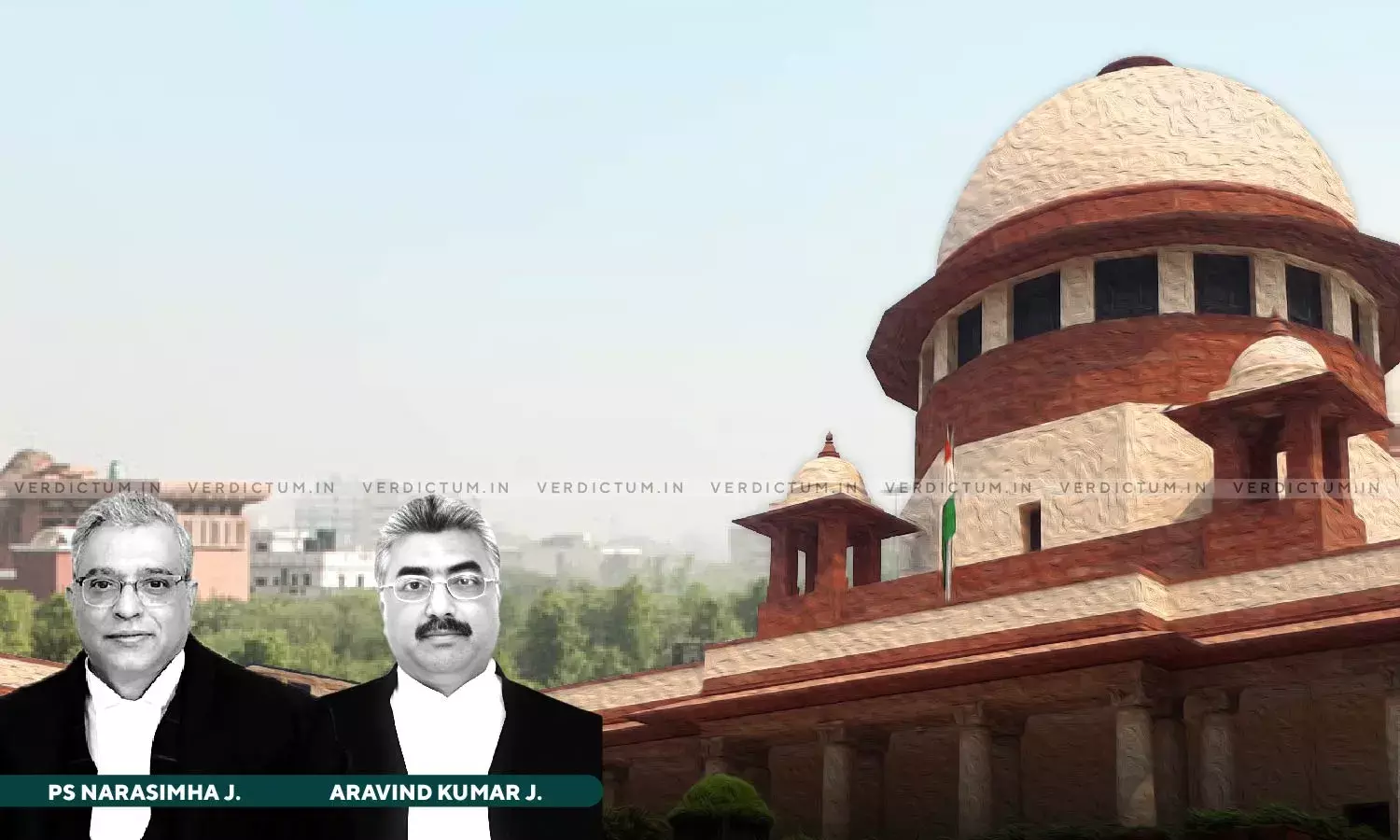University Is Bound To Comply With What Is Declared In Its Advertisement: SC While Holding Candidate's Appointment As Illegal
The Supreme Court while holding an appointment of a candidate as illegal observed that the University is bound to comply with what is declared in its advertisement.
The Court observed thus in civil appeals preferred against the judgment of the Division Bench by which it upheld the order of the Single Judge of the Karnataka High Court.
The two-Judge Bench comprising Justice P.S. Narasimha and Justice Aravind Kumar held, “While we reject the submission of Mr. Shailesh Madiyal that the advertisement declaring that the 2001 Rules will be the ‘Mode of Selection’, is a mistake, we also hold that the university is bound to comply with what is declared in its advertisement: the 2001 Rules will be the guiding principles for the selection in question..”
Senior Advocate Shailesh Madiyal appeared on behalf of the appellant while Senior Advocates Anand Sanjay M. Nuli, Gagan Gupta, and D.L. Chidananda appeared on behalf of the respondents.
Factual Background -
The Bangalore University constituted under the Karnataka State Universities Act, 2000 issued an advertisement for filling up backlog vacancies to posts reserved for Scheduled Castes (SCs) and Scheduled Tribes (STs). Out of the 34 posts advertised for Assistant Professors, one post of Assistant Professor in the department of English was reserved for a ST candidate. The advertisement provided that the qualifications for the post shall be as provided under the University Grants Commission (UGC) Regulations, 2016. Amongst the eligible candidates belonging to ST community, those who fell within the age bracket of 29-40 years, had a preferential right to be appointed over and above even meritorious candidates.
The appellant and respondent were both ST candidates and were eligible for appointment. While the appellant was higher in merit, the respondent was within the said age bracket and as such, a preferential candidate as per Rules. Though the university advertised that the ‘Mode of Selection’ shall be as per Special Recruitment Rules, 2001, it followed its own procedure and proceeded to appoint the appellant based on merit. Hence, the respondent challenged the same before the High Court and the Single Judge allowed his writ petition. The Division Bench also confirmed this decision and hence, the appellant was before the Apex Court.
The Supreme Court in view of the facts and circumstances of the case noted, “Firstly, there was no uncertainty left after the introduction of sub-Section (1A) to Sec. 4 of the Reservation Act, 1990, requiring an establishment, i.e., the university, to take action for filling the backlog vacancies as a one-time measure by following the method prescribed by the Government. Secondly, the purpose and object of the amendment was amply clear from its SOR contemplating the application of the 2001 Rules for the universities. Thirdly, the conduct of the university in not responding to the categorical demands of the Government through its letters dated 27.02.2018, 22.05.2018 and 09.06.2021 to implement the 2001 Rules is conclusive about its acceptance of the applicable law and the policy, and therefore, the advertisement. Hence, the requirement of the Government to specify the manner, procedure and time for identifying, filling backlog vacancies and completing the same was amply clear to the university. It is with this view that the university advertised that the ‘Mode of Selection’ shall be as per the 2001 Rules.”
The Court said that the unfortunate situation has arisen not because of anything wrong attributable to the appellant, but due to the indifferent manner with which the university conducted itself and in order to obviate the injustice caused to the appellant, the university may consider creating a supernumerary post to accommodate her.
“We are fully conscious of the limitations in creating such posts over and above the positions that are borne by a cadre,9 but this is an extraordinary situation for exercising such discretion.10 We leave it to the university to take a decision on this issue and pass the necessary orders”, it concluded.
Accordingly, the Apex Court dismissed the appeals and upheld the judgment of the High Court.
Cause Title- Chaitra Nagammanavar v. State of Karnataka & Ors. (Neutral Citation: 2024 INSC 367)
Appearance:
Appellant: Senior Advocate Shailesh Madiyal, AOR Mrigank Prabhakar, Advocates Divija Mahajan, Vaibhav Sabharwal, and Amisha Devi.
Respondents: Senior Advocates Gagan Gupta, Anand Sanjay M Nuli, Advocates Rahamathulla Kothwal, Siddika Aisha, AORs Manju Jetley, D. L. Chidananda, Shubhranshu Padhi, Advocates Agam Sharma, Suraj Kaushik, Dharam Singh, Nanda Kumar K B, Akhila Wali, Akash Kukreja, and AOR M/S. Nuli & Nuli.




